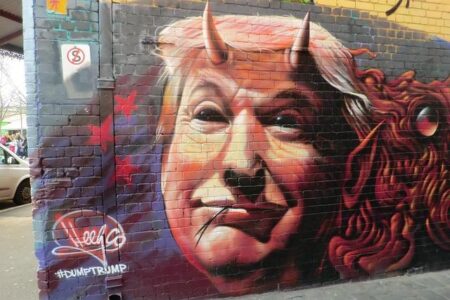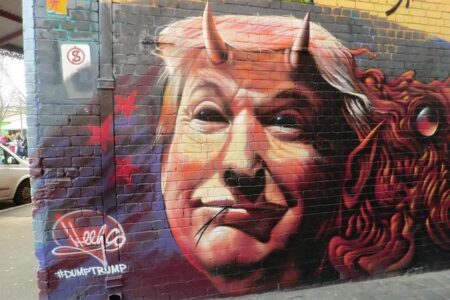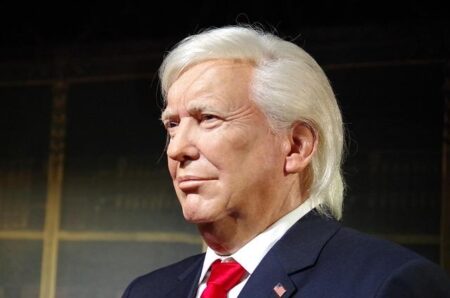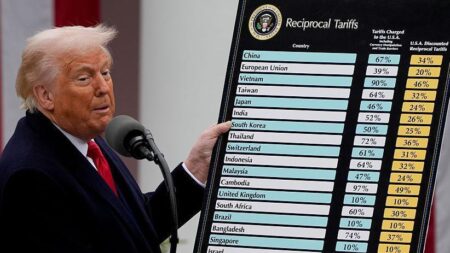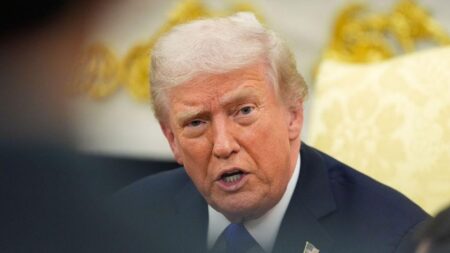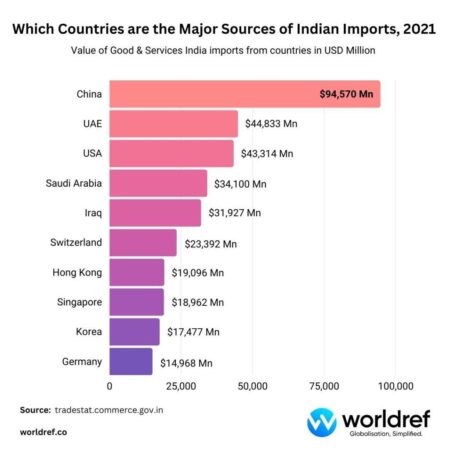A U.S. court’s decision to block key Trump-era tariffs marks a major win for China and India, easing trade tensions and opening the door to exciting new opportunities for exporters as markets anticipate a potential shift in American trade policy
Browsing: import tariffs
Germany is calling on the EU to stand together with a bold, unified response to US tariffs, highlighting the critical need for a clear and decisive European stance as trade tensions escalate. This urgent appeal reflects growing concerns over the wide-reaching impact on transatlantic economic ties
JPMorgan’s latest analysis reveals that although Trump’s tariffs are squeezing China, they come with a steep price-burdening American small businesses with soaring costs and complicated supply chains
The EU is preparing to impose tariffs on electric vehicles imported from China, Reuters reports. This bold move aims to protect European EV manufacturers as they battle increasing competition from Chinese contenders
Former President Trump has launched a daring campaign to decertify Canadian-made aircraft, threatening to impose steep 50% tariffs. This bold move escalates trade tensions between the U.S. and Canada, sending shockwaves rippling through the aviation industry
China has dramatically slashed import tariffs on Scotch whisky, slashing costs for exporters and paving the way for a surge in sales. This bold move shines a spotlight on the growing passion for premium spirits among Chinese consumers, reports Just Drinks
Former President Donald Trump has issued a bold warning: if the U.S. proceeds with a trade deal with China, he will impose a staggering 100% tariff on Canadian goods, escalating tensions between these longtime allies, according to upi.com
China and Canada have struck a groundbreaking deal to reduce tariffs following intense negotiations, signaling a hopeful thaw in their trade relations. Officials believe this bold move will deepen economic cooperation between the two countries and inject much-needed stability into global markets
Canada’s Prime Minister has arrived in Beijing amid critical talks on electric vehicle tariffs. This high-stakes meeting aims to ease trade tensions and spark a powerful new partnership in the rapidly growing EV market, marking a defining moment for both countries
The US has significantly slashed the proposed tariffs on Italian pasta imports, easing trade tensions and paving the way for a win-win outcome for producers in both nations. This breakthrough follows ongoing talks aimed at strengthening economic partnerships
One of India’s wealthiest states is raising a red flag, warning that U.S. tariffs introduced during the Trump era are inflicting “irreparable damage” on its economy. It urges immediate action to protect crucial trade and investment ties, The Economic Times reports
Trump claims that tariff revenues could fund at least nine major initiatives, but Democrats argue these tariffs have ended up costing every American household $1,200. Stay tuned for the latest updates on this fiery tariff showdown-only on Yahoo Finance.
The Canadian steel industry is urgently appealing to British Columbia for support amid rising U.S. trade tensions, sounding the alarm that the ongoing trade war threatens jobs and market stability. Immediate government action is crucial to safeguard the industry’s future
India’s voracious demand for affordable steel is sending shockwaves through global markets, driving environmental harm and sparking critical labor concerns. As prices soar worldwide, the country faces mounting economic challenges alongside pressing ecological crises
Former President Donald Trump is preparing to cut tariffs dramatically and strike new trade deals, all designed to lower prices for consumers and spark a surge in economic growth. This ambitious move signals a major shake-up in U.S. trade policy, Bloomberg reports
The US Senate has made a bold move by passing a resolution that halts former President Trump’s proposal to impose a 50% tariff on Brazilian goods, protecting crucial trade relationships and avoiding potential economic chaos
President Trump is driving hard to lock in a “great deal” with China, proposing tariff cuts to fast-track the crucial trade talks. At the center of this high-stakes negotiation is Nvidia, highlighting just how pivotal the tech industry has become in these discussions
The Senate has enthusiastically approved a bipartisan resolution to eliminate tariffs on Brazilian goods, paving the way for stronger U.S.-Brazil trade ties and enhanced economic collaboration. This landmark decision represents a major leap forward in reducing trade barriers
In a surprising turn of events, President Trump has sharply increased tariffs on Canadian goods following a provocative ad by Ron Reagan. According to the BBC, this bold move escalates the already fierce trade tensions between the US and Canada
The US is gearing up to slash tariffs on Indian imports to 15%-16%, marking a bold move to ease trade tensions and turbocharge bilateral commerce, according to a recent India Today report. This strategic decision aims to deepen economic ties and ignite stronger cooperation between the two nations



